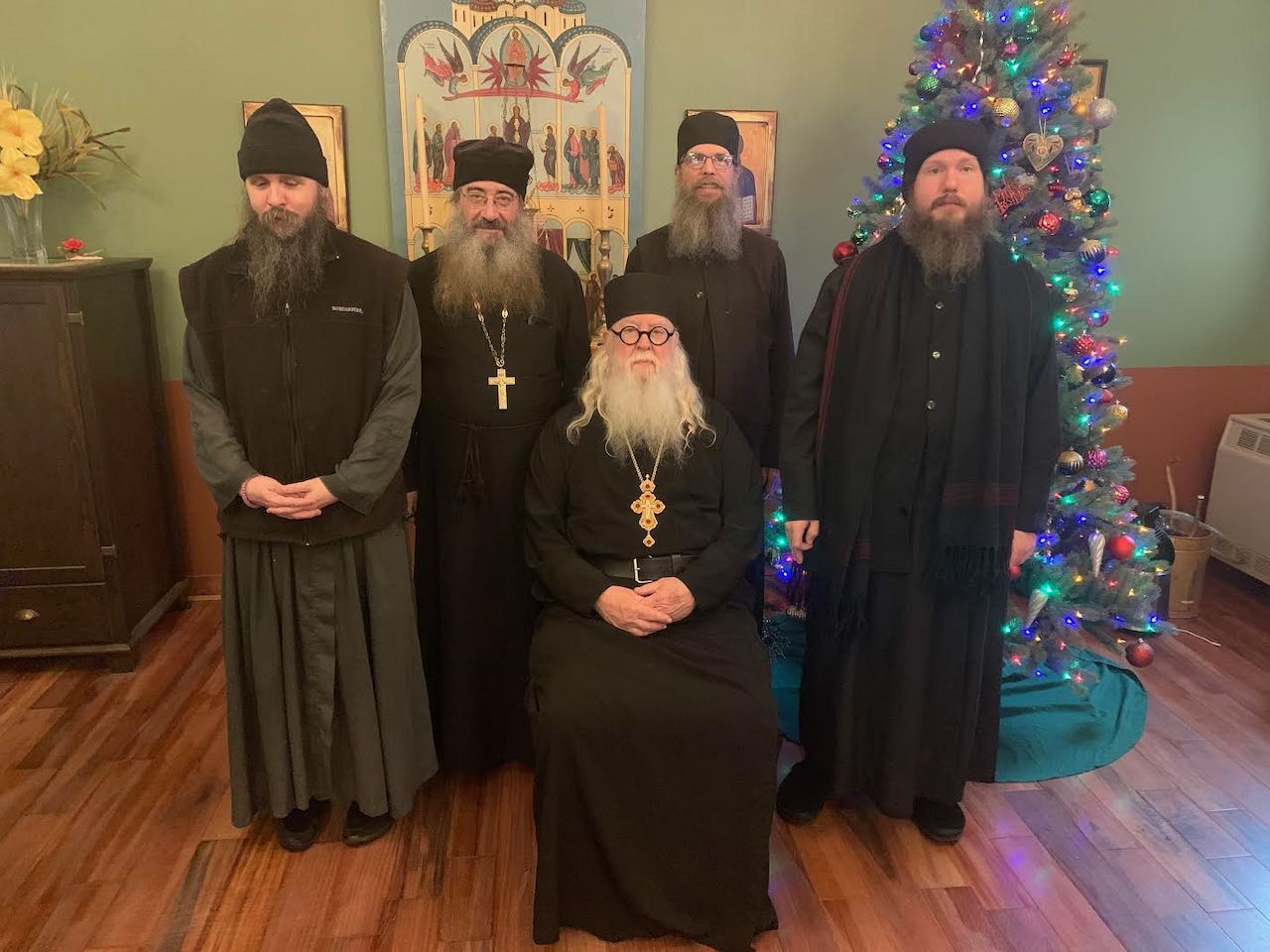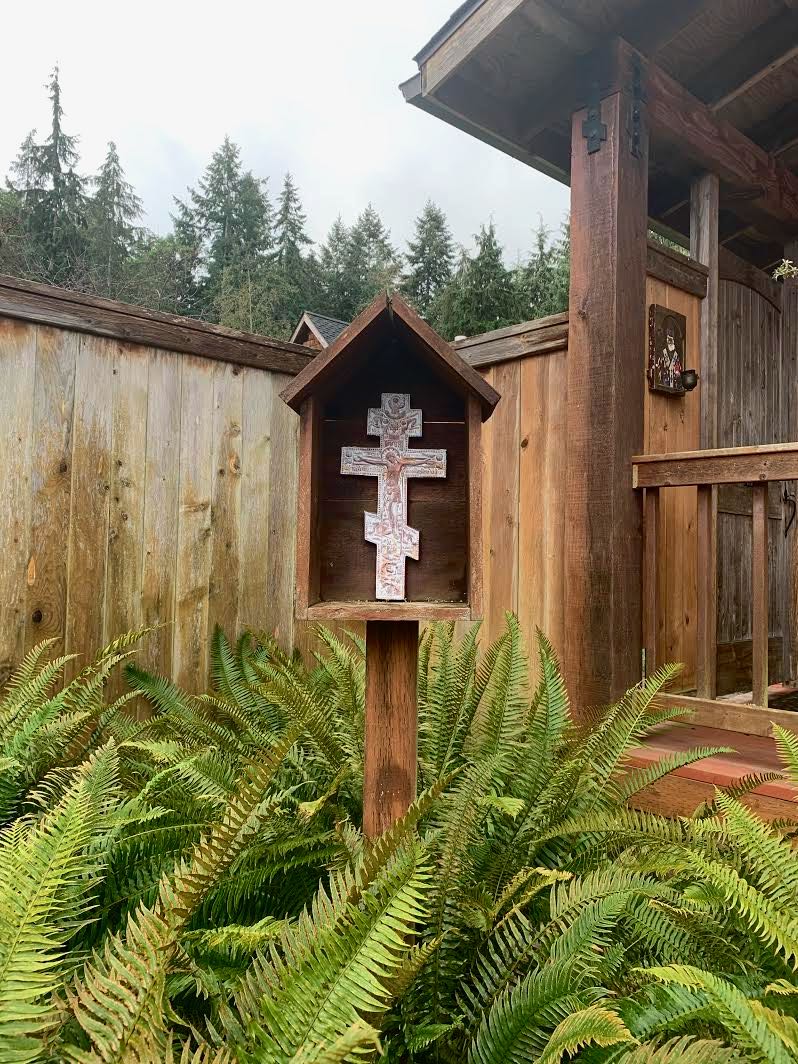The tribes of Judah and Levi were united by a fusion of their lines of descent, and that is why Matthew assigns Christ's family to the tribe of Judah. And the Apostle says, 'for our Lord has sprung out of Judah' (Heb. 7:14).
St. Ambrose of Milan
Seven Exegetical Works, 4th Century
Thus, from the tribe of Levi may be counted a heritage that is priestly and filled with holiness, while from the tribe of Judah - to which David and Solomon and the rest of the kings belonged - there shines forth the splendor of a royal descent. And so, by the testimony of the Scriptures, Christ is shown to be at once both king and priest.
St. Ambrose of Milan
Seven Exegetical Works, 4th Century
I too will proclaim the greatness of this day: the Immaterial become incarnate, the Word is made flesh, the invisible makes itself seen, the intangible can be touched, the timeless has a beginning, the Son of God becomes the Son of Man, Jesus Christ, always the same, yesterday, today and forever. . . This is the solemnity we are celebrating today: the arrival of God among us, so that we might go to God, or more precisely, return to Him. . . Revere the nativity which releases you from the chains of evil. Honor this tiny Bethlehem which restores Paradise to you. Venerate this crib; because of it you who were deprived of meaning (logos) are fed by the divine Meaning, the divine Logos Himself.
St. Gregory the Theologian
Oration 38, For Christmas (Patrologia Graeca, 36, 664-5) found in The Roots of Christian Mysticism by Olivier Clement, New City Press, NY, p. 41, 330-390
That God should have clothed Himself with our nature is a fact that should not seem strange or extravagant to minds that do not form too paltry an idea of reality. Who, looking at the universe, would be so feeble-minded as not to believe that God is all in all; that He clothes Himself with the universe, and at the same time contains it and dwells in it? What exists depends on Him Who exists, and nothing can exist except in the bosom of Him Who is.
If then all is in Him and He is in all, . . .Indeed, if the presence of God in us does not take the same form now as it did then, we can at least agree in recognizing that He is in us today no less tha He was then. Today, He is involved with us in as much as He maintains creation in existence. Then He mingled Himself with our being to deify it by contact with Him, after He had snatched it from death. . . For His resurrection becomes for mortals the promise of their return to immortal life.
St. Gregory of Nyssa, Catechetical Orations, 25 (Patrologia Graeca, Migne.)
Found in The Roots of Christian Mysticism by Olivier Clement, New City Press, NY, pp. 37-38, 330-395
The Lord has given us a sign 'as deep as Sheol and as high as heaven', such as we should not have dared to hope for. How could we have expected to see a Virgin with Child, and to see in this Child a 'God with us' (Isaiah 7: 11 & 14) Who would descend into the depths of the earth to seek for the lost sheep, meaning the creature He had fashioned, and then ascend again to present to His Father humanity thus regained?
Irenaeus of Lyons
Against Heresies, III, 19.3 (SC 211, p. 380), 130-208
Pray, my brethren, to the Mother of God when the storm of enmity and malice bursts forth in your house. She, Who is all-merciful and all-powerful, can easily pacify the hearts of men. Peace and love proceed from the one God, as from their Source, and Our Lady - in God, as the Mother of Christ the Peace, is zealous, and prays for the peace of the whole world, and above all - of all Christians.
St. John of Kronstadt
My Life in Christ: Part 1, Holy Trinity Monastery pg. 179, 19th century
How could the human race go to God if God had not come to us? How should we free ourselves from our birth into death if we had not been born again according to faith by a new birth generously given by God, thanks to that which came about from the Virgin's womb?
Irenaeus of Lyons, Against Heresies, IV, 33,4
Sources Chretiennes, Cerf, Paris found in The Roots of Christian Mysticism by Olivier Clement, p. 37., 130-208
His love for me brought low His greatness.
He made Himself like me so that I might receive Him.
He made Himself like me so that I might be clothed in Him.
I had no fear when I saw Him,
for He is mercy for me.
He took my nature so that I might understand Him,
my face, so that I should not turn away from Him.
42 hymns discovered in 1905 in a Syriac Manuscript.
Odes of Solomon 7 (The Odes and Psalms of Solomon R. Harris adn A. Mingana II, pp. 240-1). Written in Greek for the Christian communities of Syria., Early 2nd Century
This is the reason why the Word of God was made flesh, and the Son of God became Son of Man: so that we might enter into communion with the Word of God, and by receiving adoption might become Sons of God. Indeed we should not be able to share in immortality without a close union with the Immortal. How could we have united ourselves with immortality if Immortality had not become what we are, in such a way that we should not be absorbed by it, and thus we should be adopted as Sons of God?
Irenaeus of Lyons, Against Heresies, III. 19,1
Sources Chretiennes, Cerf, Paris, as found in The Roots of Christian Mysticism by Olivier Clement, p. 38, 130-208
Most of all we should marvel, that being Son of the Unorginate God, and His true Son, He suffered Himself to be called also Son of David, that He might make you Son of God. A slave became His father so that you a slave, might have the Lord as your Father. . .When therefore you are told that the Son of God is Son of David and of Abraham, do not doubt anymore that you too, the son of Adam, should become a son of God. For it was not randomly, nor in vain, that He did lower Himself so greatly, for He had in mind to exalt us. Thus He was born after the flesh, that you might be born after the Spirit.
St. John Chrysostom
Homily 2 on Matthew 1: 1-25, Nicene and Post-Nicene Fathers, 344/354-407
Great indeed was the faith of Abraham. . . It was necessary to go beyond human reasoning. . . to manifest also something more.
St. John Chrysostom
Homily XXV on Hebrews XI, 1,2. translation found in The Bible and the Holy Fathers for Orthodox, Monastery Books, St. Vladimir's Seminary Press, Crestwood, NY 2003, p. 955., 4th Century
Lift up your voice, O Zion, holy city of God,
Proclaim the divine memory of the Fathers.
With Abraham, Isaac, and Jacob
Honor one whose memory is eternal:
For behold, with Judah and levi we magnify Moses the Great,
And with him the wonder-working Aaron.
With David we celebrate the memory of Joshua and Samuel,
Calling all with divine songs and praise
To the prefeast of Christ's Nativity,
Praying that we may receive His goodness,
For it is He who grants the world great mercy.
Orthros of the Sunday before the Nativity
Translation from "The Winter Pascha" SVS Press
Through their prayers for, and alms on behalf of, the deceased, Christians display the relationship between this world and the world to come.
The Church in this world and the Church in the other world are one and the same the one Body of Christ one the Church Militant and the other the Church Triumphant. It can be compared to a tree which has roots beneath the earth comprise as well as branches above the earth, but both the roots and the branches comprise one organism. This metaphor also illustrates how we on earth who comprise the Church Militant can receive help from the saints and the righteous ones in the Heavenly Church Triumphant. Saint Athanasios says: 'As it happens with wine inside a barrel which, when the vineyard blooms in the field, senses it and the wine itself blossoms together with it, so it is with the souls of sinners. They receive some relief from the Bloodless Sacrifice offered for them and from charity' performed for their repose.
Saint Ephrem the Syrian cites that same example with wine and the vineyard and concludes: 'And so, when there exists such mutual sensitivity even among plants, is not the prayer and sacrifice felt even more for the departed ones?'
'[At the Eucharist] the bread itself and the wine are changed into God's body and blood. But if you enquire how this happens, it is enough for you to learn that it was through the Holy Spirit, just as the Lord took on Himself flesh that subsisted in Him and was born of the Holy Mother of God through the Spirit. And we know nothing further save that the Word of God is true and energises and is omnipotent, but the manner of this cannot be searched out. But one can put it well thus, that just as in nature the bread by the eating and the wine by the drinking are changed into the body and blood of the eater and drinker, and do not become a different body from the former one, so the bread of the table and the wine and water are supernaturally changed by the invocation and presence of the Holy Spirit into the body and blood of Christ, and are not two but one and the same.'
St. John of Damascus
An Exact Exposition of the Orthodox Faith, Book 4: Chapter 13; Eerdmans pg. 83, 8th century



